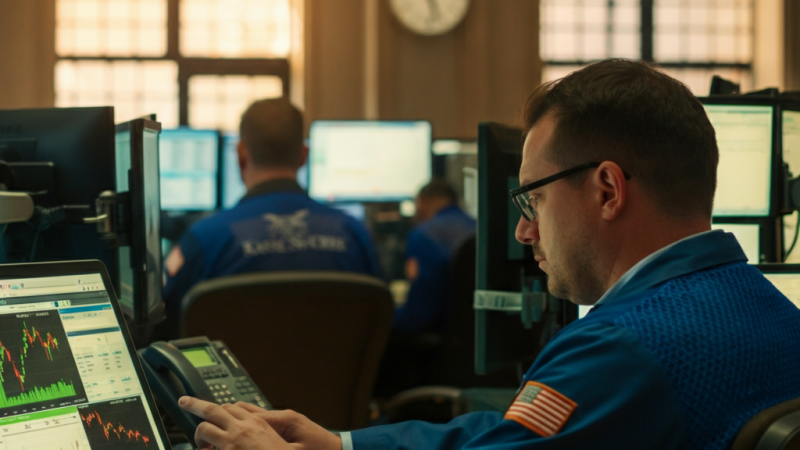Should I Save or Invest? Retirement Guide [2023]
![Should I Save or Invest? Retirement Guide [2023]](https://technonguide.com/wp-content/uploads/2023/05/Invest.webp)
So, you’re looking towards your retirement fund but are a bit stuck on where to put your money.
Well, that’s completely understandable!
Yes, with the introduction of new technologies and strategies, the world of investment is becoming more accessible for anyone to get involved.
However, as it becomes easier to invest, it’s also true that it can be a bit complicated now for those just getting started.
With so many options, where do you find the best retirement investment?
This confusion has led many to consider saving their money instead of investing it.
But – for those seeking the best retirement – which option is best?
Investing
If you’re seeking solid returns, investing your money may beat saving it.
The Advantages of Investing
The Potential for Better Returns is High
Investing your money is likely your best option for those seeking long-term results.
Depending on the level of personal finance, the value of an investment and which investment productions chosen to engage with, investing your money instead of saving could bring about much more lucrative returns and fruitful retirement.
Essentially, the growth potential with investment is much higher than saving.
Saving will only bring limited growth in the long term, with any money saved will be steadily eroded by rising inflation rates.
In direct contrast, investing can often flourish during periods of inflation.
For example, investing in properties during inflation can provide solid growth and much higher returns. Since 2022, rental prices have risen by 11.8%, with even more growth predicted over the next five years. Certain areas, in particular, are set to skyrocket in value, with places like the North West predicted to see growth of 11.7% across the next five years.
Alongside rising rental prices, the value of property is steadily on the rise. Across the UK, values are expected to jump by 12.9% by 2027, meaning that any property you invest in will be worth much more over a long period.
The bottom line is this: investing your money instead of hoarding it can see impressive returns further down the line depending on where you put it. If you’re looking to build up your retirement fund, even after you’ve finished working, then this may be the choice for you.
The Disadvantages of Investing
Investment is a Long-Term Commitment
Of course, like all financial solutions, investment is not foolproof.
It takes some time to get started with an investment, and it can be slightly more difficult than saving your money.
Before you even think about signing anything, you need to have taken the time to research everything surrounding your asset – no matter if it’s property or cryptocurrency.
Regardless of where you invest, you will also be fighting everchanging markets, innovations and time itself – which can be quite stressful for some if they don’t exactly know what they’re doing.
If you want a quick return, then investing may not be the perfect strategy for you.
However, if you’re willing to put the time and work in, there’s a much greater potential for growth and higher returns.
Saving
When looking at saving money vs investing, saving offers these perks:
Savings will not change in value
As you’re essentially stockpiling your money, your savings account will not fluctuate in value.
The stock market could – theoretically – crash and burn at any given moment, but if you’ve put all your money into savings, your balance won’t change unless you make any withdrawals.
Money is also a liquid asset, meaning you can use it directly to buy things, pay bills/debts, or any other living expenses whenever needed.
If you’d put this into stocks, you’d first have to convert them before you could spend them.
Again, with property investment, you may also have to wait for a period of time before you can use or see better returns.
Whilst a month’s rental income from a property could see massive results, you could also have to wait a month before you could use it.
The Disadvantages of Saving
Savings can bring negative returns after inflation
The biggest downside to saving is that money loses its value over time.
A sad fact of inflation, rising prices typically result in lower spending power.
If you keep your money in a savings account, you will not see the value decrease. However, if you save for a longer time frame, the inflation rate means that it might have a different spending power than it did when you first put it away.
In the 1970s, £1 could get you ten loaves of bread. Fast forward a couple of decades, and in 2022, you’d be lucky to get one loaf for £1 – so what another ten years could bring?
Conclusion
Undoubtedly, both saving and investment can bring some impressive results for those seeking to build their retirement fund.
With each option having its own pros and cons, it isn’t easy to crown one as the singular, greatest strategy for securing a financial future.
It’s vital, then, that you take the time to thoroughly investigate each option before making any final decisions.
After all, when planning for your future, you can never be too careful!






